How to keep squirrels away from fruit trees – 3 expert solutions to protect your harvest
These furry garden visitors may take a liking to your fruit trees. Find out how to stop them causing damage
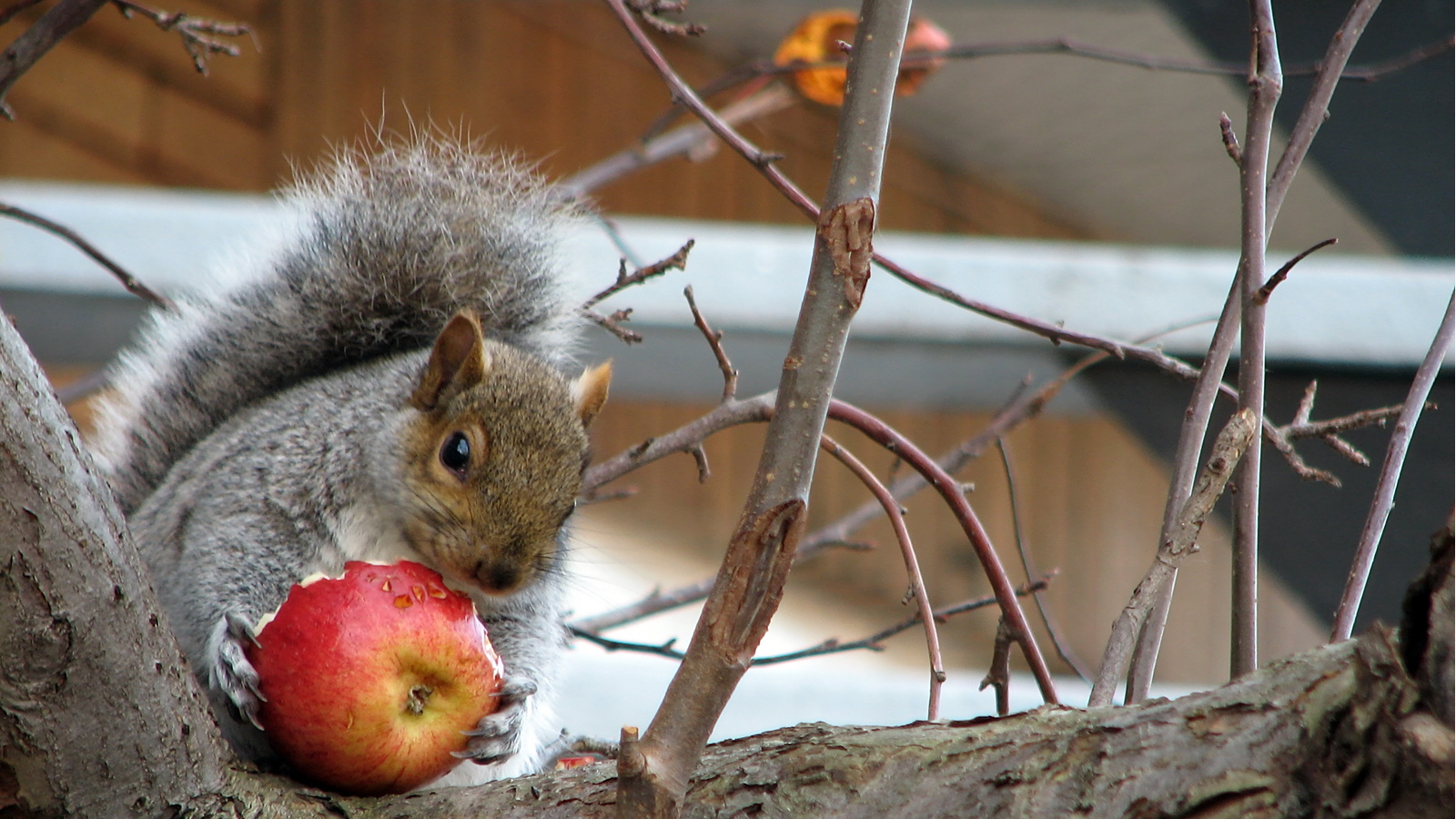

One of the joys of creating a beautiful and biodiverse outdoor space is watching garden wildlife visit. However, sometimes these cute creatures can also cause mayhem among the plants you're growing.
The best fruit trees need special care to produce an abundant harvest, so it's important to put some measures in place to keep certain wildlife like squirrels away from them. Even if you have already tried natural deterrents to stop squirrels from digging up bulbs and mastered how to keep squirrels out of potted plants, you still need to learn how to keep squirrels away from fruit trees to protect them properly.
But don't worry, we've asked experts how to keep squirrels away from fruit trees so that you can protect your harvest this year.
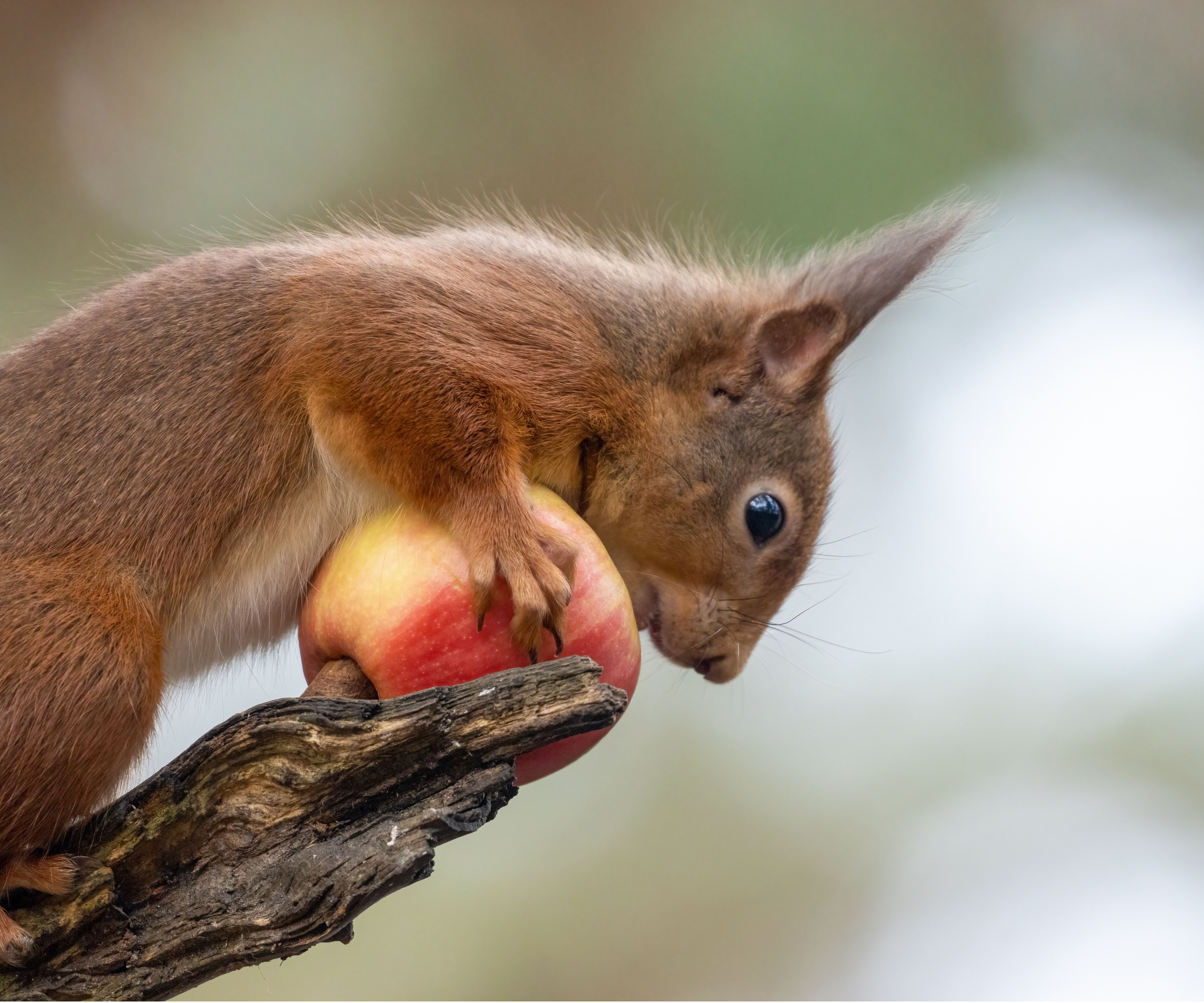
How to keep squirrels away from fruit trees
Although cute, squirrels can become a nuisance by feeding on your fruit trees. Luckily, there are a few things you can do to keep squirrels at bay and protect your harvest. Discover our expert list of solutions below.
1. Use a baffle
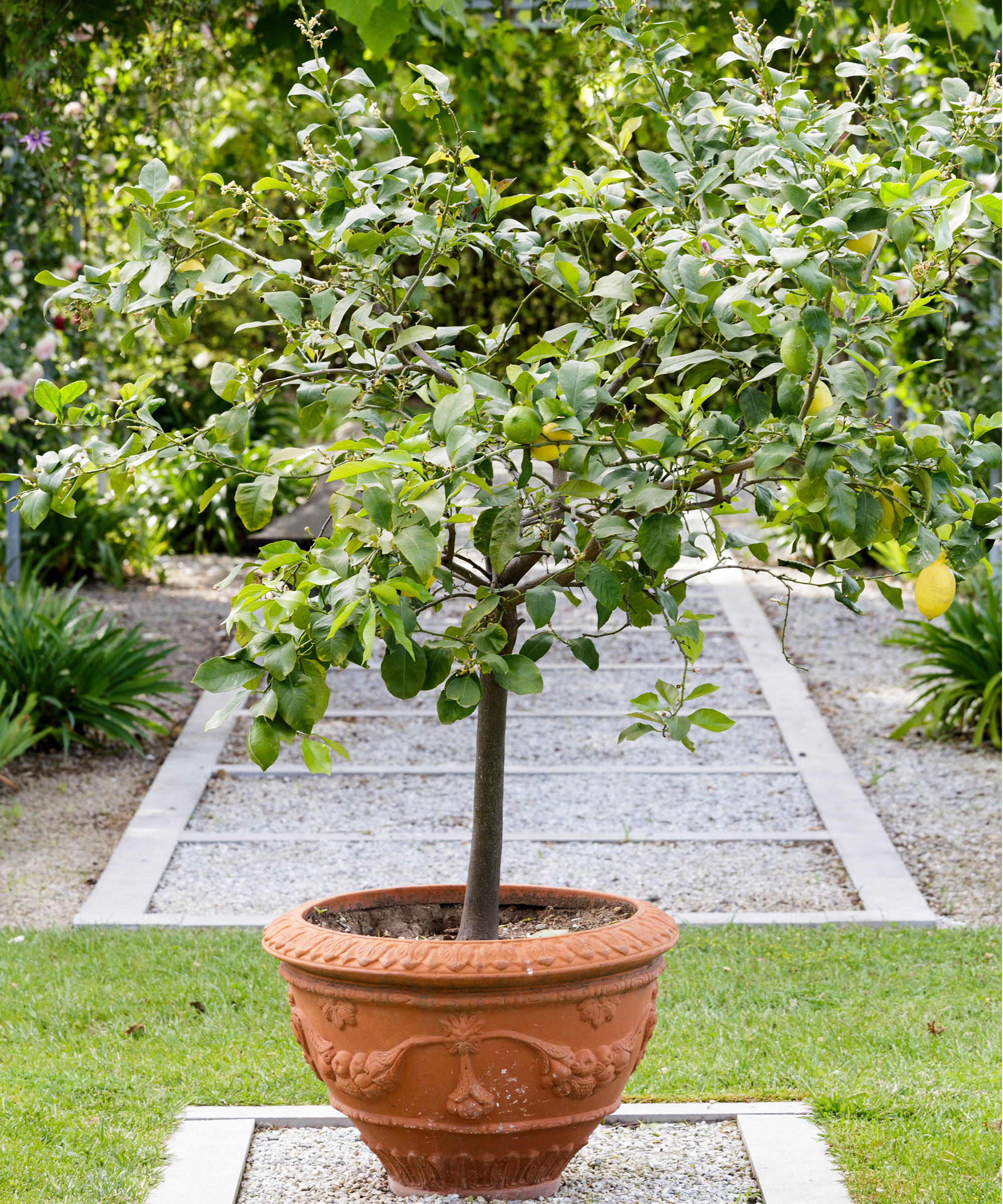
When squirrels spot a fruit tree they would like to climb, they'll use the trunk to make their way up to the foliage, flower buds and fruit.
'Keeping your fruit trees completely free of squirrels is a tall task. Squirrels are excellent climbers and impressive jumpers,' says Derrick Clay, pest control expert and district manager at Trutech Wildlife Service in Jacksonville.
'If you have a fruit tree secluded, you can install baffles. There are different versions, but they accomplish the same thing. It's wrapped around a tree trunk and stops a squirrel from climbing,' he adds.
A baffle is a sleeve usually made of metal or plastic that sits around the trunk of a tree to create a surface too smooth for wildlife like squirrels to climb up. Baffles are also good tools to keep squirrels away from bird feeders.
You can find different kinds of baffles online, like this expandable tree guard from Amazon.

Derrick Clay is the district manager for Jacksonville, FL. He joins Trutech Wildlife Service with over thirteen years of experience in the pest control.
2. Trim away neighboring branches
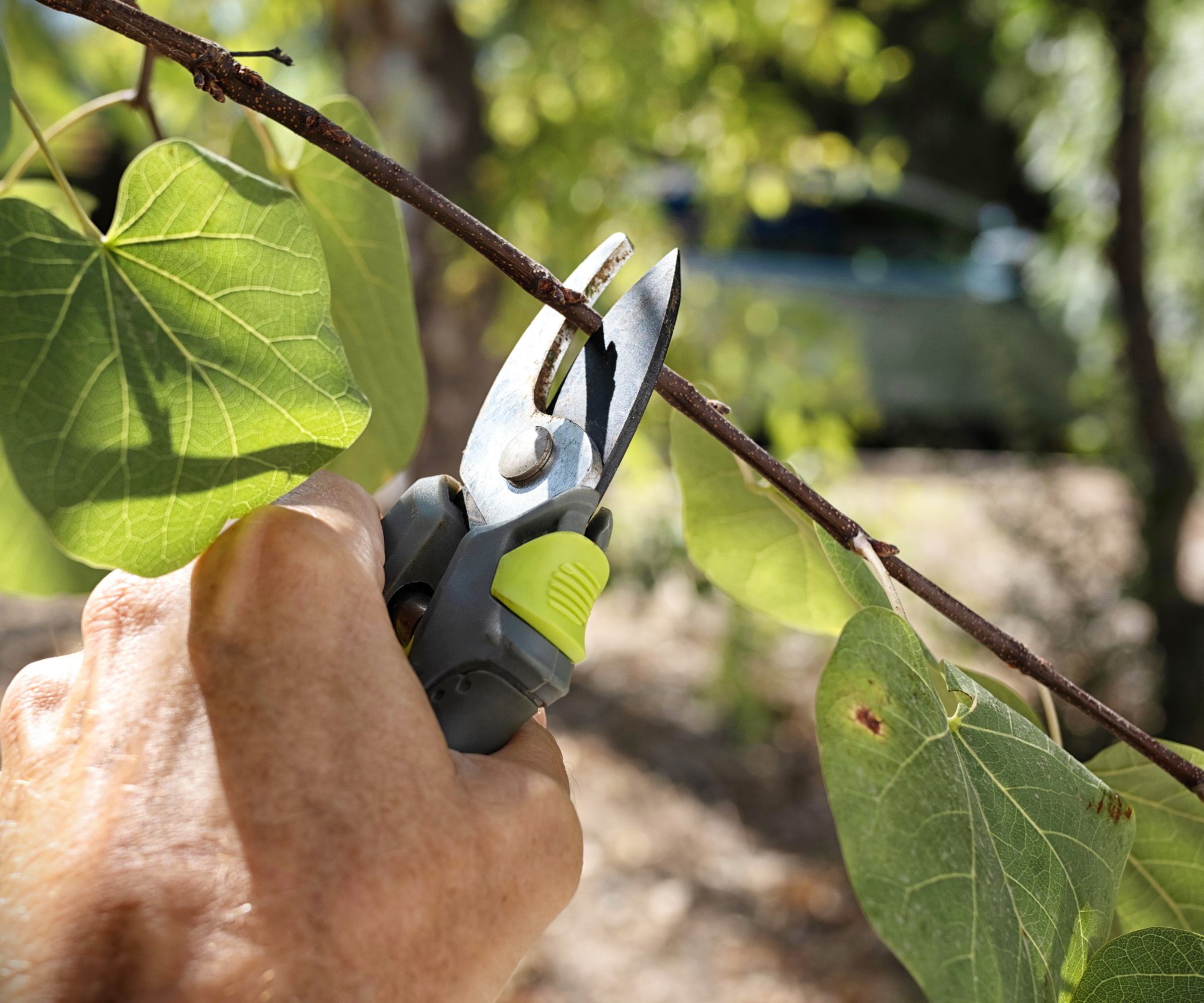
Not only do squirrels climb, they jump. This means if you have neighboring trees or surfaces, squirrels will be able to jump onto fruit tree branches.
'They can easily jump six feet from limb to limb. If your fruit trees are near other structures squirrels can climb, it is difficult,' notes Derrick.
However, pruning tree branches and cutting back branches can help discourage squirrels taking this route to your fruit trees.
'Trim any other tree branches that are within six to eight feet of the tree,' Derrick adds.
You'll need essential gardening tools to do this, like these loppers from Amazon.
3. Provide alternative food sources
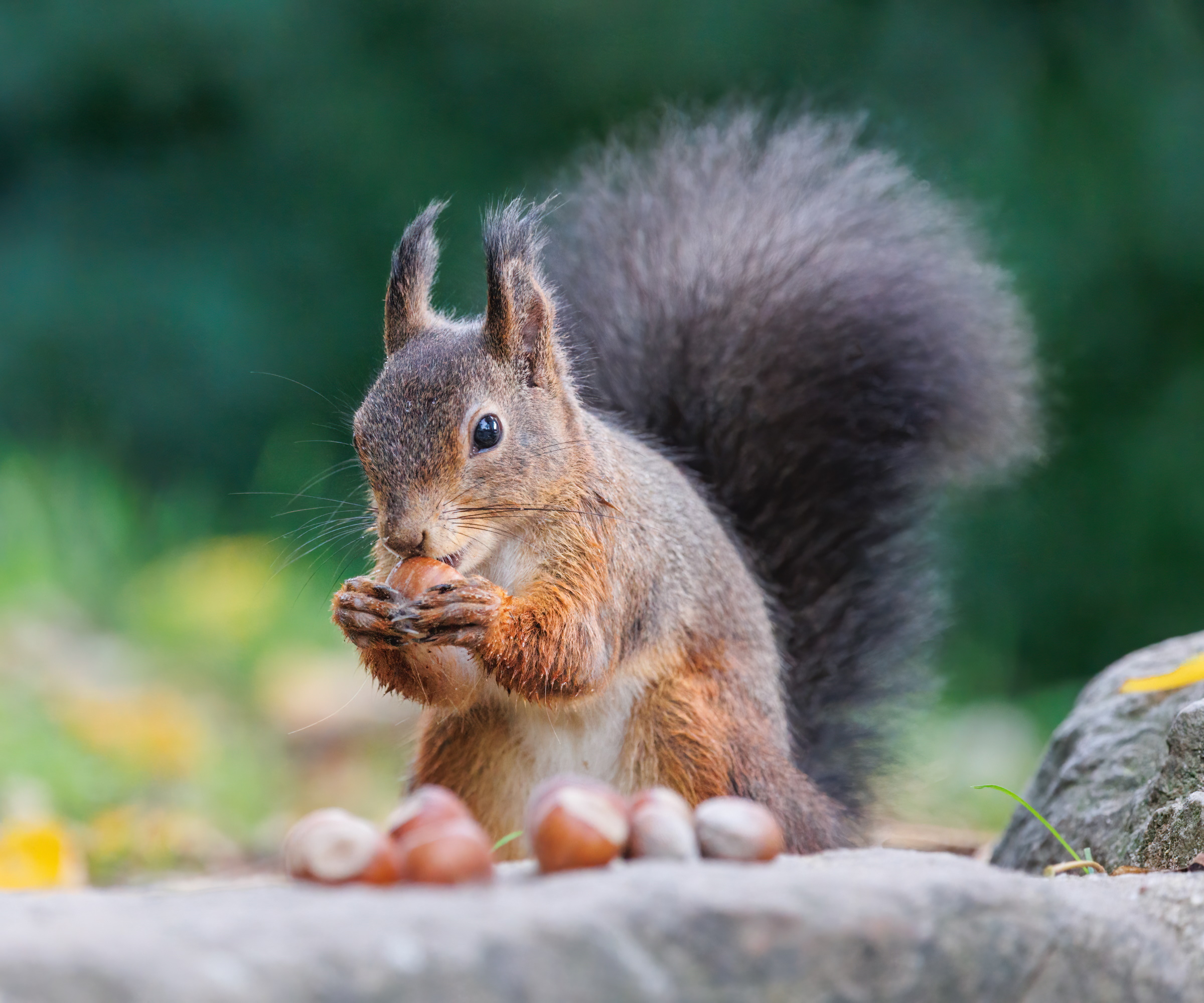
When squirrels set their eyes on your fruit trees, it's for one aim - to eat.
'Squirrels are notorious for raiding fruit trees and devouring the harvest. Their keen sense of smell helps them locate ripe fruits, and they may nibble on both the fruit itself and the tree's buds, flowers and young shoots,' says Lars Nyman, gardener and founder of gardening education platform Taim.io.
By providing alternative food sources in your yard, you can discourage squirrels from nibbling at your fruit trees. 'Set up feeding stations with squirrel-friendly treats away from your fruit trees to divert their attention,' says Lars.
You can set up stations with things like chopped up fruit and hazelnuts to satisfy visiting garden wildlife and keep your fruit trees safe. You can even find feeders online, like this squirrel feeder from Amazon, to make a dedicated spot for them to eat in your yard.

Lars is a gardener and founder of gardening education platform, Taim.io. He has a lifelong passion for gardening and provides advice on plant and gardening matters.
FAQs
What wildlife is attracted to fruit trees?
Not only are squirrels notorious for climbing and eating from fruit trees, but you may also notice pollinators enjoying your trees. Birds, bees and butterflies aid pollination and will collect pollen from fruit tree blooms during spring. Wildlife that you might want to discourage from getting to your fruit trees include rats and chipmunks, which will also eat from your tree like squirrels.
Although cute to see, squirrels can become a nuisance in the backyard when they start climbing and eating from your fruit trees. Try these methods to keep them away and protect your harvest.
If you want to help squirrels in other ways in your yard, you might find our guide to the best trees for wildlife interesting.
Sign up to the Homes & Gardens newsletter
Design expertise in your inbox – from inspiring decorating ideas and beautiful celebrity homes to practical gardening advice and shopping round-ups.

Tenielle is a Gardens News Writer at Homes & Gardens. She holds a qualification in MA Magazine Journalism and has over six years of journalistic experience. Before coming to Homes & Gardens, Tenielle was in the editorial department at the Royal Horticultural Society and worked on The Garden magazine. As our in-house houseplant expert, Tenielle writes on a range of solutions to houseplant problems, as well as other 'how to' guides, inspiring garden projects, and the latest gardening news. When she isn't writing, Tenielle can be found propagating her ever-growing collection of indoor plants, helping others overcome common houseplant pests and diseases, volunteering at a local gardening club, and attending gardening workshops, like a composting masterclass.
-
 Ina Garten's storage pantry is an insightful window into all of the best cookware used by the chef – and it's easy to recreate on your kitchen shelves from $48
Ina Garten's storage pantry is an insightful window into all of the best cookware used by the chef – and it's easy to recreate on your kitchen shelves from $48The beautiful dishware in The Barefoot Contessa's Hamptons pantry showcases the tools she uses most often to cook – this is exactly how you replicate it
By Sophie Edwards Published
-
 Extend the lifespan of your appliance with 5 simple but crucial washing machine maintenance tips
Extend the lifespan of your appliance with 5 simple but crucial washing machine maintenance tipsFrom cleaning the filters to keeping the door open, experts reveal the washer tips they swear by
By Andy van Terheyden Published